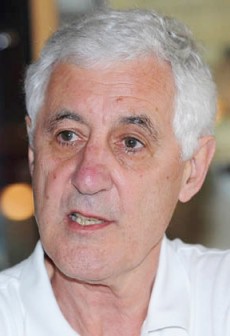CAPE TOWN, (Reuters) – Mike Brearley, one of England’s most successful cricket captains, said yesterday that eradicating corruption from the game was probably impossible but that was no reason to stop trying.
“There is a ruthless, insidious and dangerous underworld where a lot of money can be made by gambling on cricket. There are some very unpleasant people involved and the world’s professional cricketers need to know that,” said Brearley in his capacity as chairman of the MCC’s World Cricket Committee which met on Sunday and Monday in Cape Town.

Brearley said the committee had spend 90 minutes with the head of the International Cricket Council’s (ICC) Anti Corruption and Security Unit, Ronnie Flanagan, discussing how corrupt bookmakers and gamblers operated.
“They will devise new strategies to corrupt players so we must remain vigilant,” he said. “ The committee believe the problem can be contained, but probably not eradicated.”
Fellow committee member and former South African batsman Barry Richards, said: “What’s the alternative to fighting the cancer? Throw our arms in the air and give up?
“Way back in my era we used to say ‘what happened?’ when something unusual happened. Now we say ‘what the hell’s going on?’ We desperately need to fight for the game’s integrity.”
Among the committee’s proposals were the abolition of minimum penalties for offenders and the adoption of ‘Mystery Shopper’ operations in which cricketers suspected of involvement with bookmakers could be set up with offers of illegal fixing and prosecuted if they accepted.
The committee also endorsed the continuation of 50-over cricket and the Umpire Decision Review System (UDRS) but criticised the postponement of the inaugural Test Championship from 2013 to 2017.
“In every major sporting contest in the world, the winner gets to hold a cup at the end of it. The sooner we can have that for test cricket the better the game will be,” said Richards.
The ICC said in November that the test tournament between the top four teams in its rankings would not begin until 2017 because of other commitments on the calendar.





